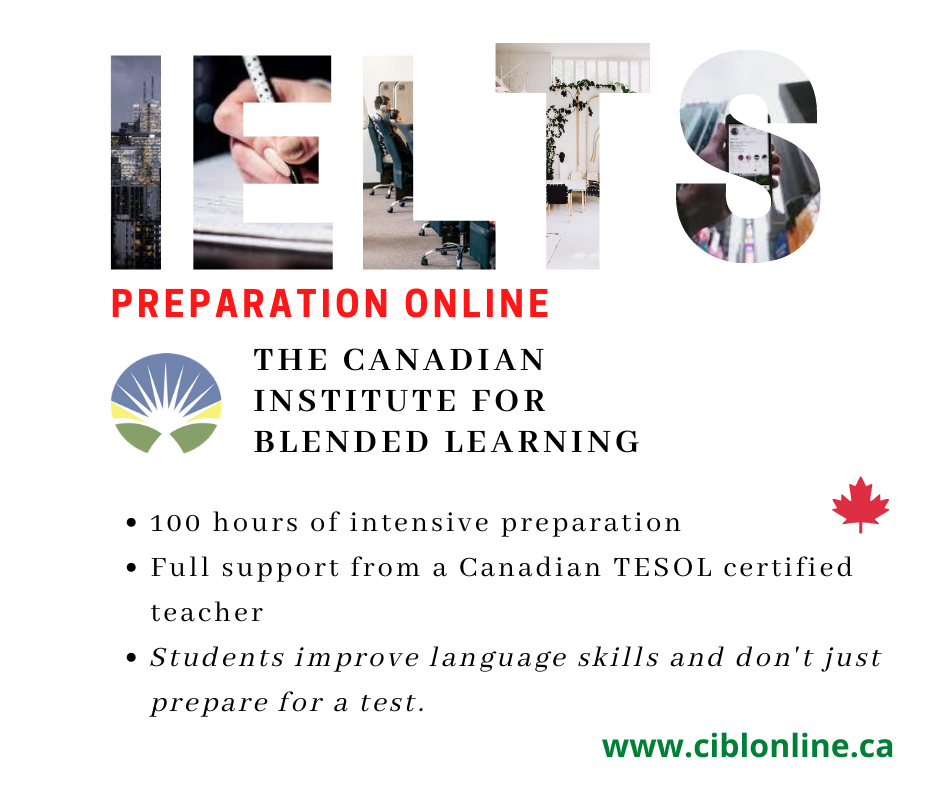Student Visas & Permits
-
If you wish to take academic, professional or vocational training at a university, college or other educational institution in Canada, you will need a study permit before you enter Canada. There are a few exceptions to this rule. For example, you do not need a permit if you are enrolling in a short-term course or program of six months or less. However, if you think you might study for more than six months, it is a good idea to obtain a study permit before you arrive
Before you can apply for a study permit, you must be accepted at a Canadian educational institution. In Canada, each province or territory manages its own education system. Different provinces and territories have different options and services for students. Once you have chosen a place to study, you will need to apply for admission. If the school admits you as a student, it will send you a letter of acceptance. You need this letter in order to apply for a study permit. Please note that if you apply to study in the province of Quebec, the requirements are different.
You must apply for a study permit from outside Canada, at the visa office responsible for the country or region where you live. Many visa offices have specific local instructions about which documents you must submit with your application.
You must include:
- your letter of acceptance;
- proof of your identity; and
- proof that you have sufficient funds for your stay in Canada.
You must include the original letter of acceptance you received from the educational institution you plan to attend. This is to prove that you have been accepted.
Proof of funds
You must also include proof that you have sufficient funds for your stay in Canada. This includes money for:
- tuition fees;
- living expenses for you and any family member coming to Canada with you; and
- return transportation for you and your family.
You may be asked to provide additional documents. In most cases, you and any family member coming to Canada with you will need a medical examination. You and any family member who is 18 or over may also need a security check. The visa office can assist you with these matters. The visa office may ask to interview you as part of the process. If so, they will tell you when and where the interview will take place. If your application is approved, you will receive a letter of introduction confirming the approval. This is not your study permit, but it is proof that your application has been approved. You will need to bring this letter to Canada with you in order to obtain your study permit upon entering. Depending on your citizenship or where you live, you may also need a temporary resident visa to enter Canada.
When you arrive in Canada, you will be met by an officer from the Canada Border Services Agency.
You will need to show the officer:
- your letter of introduction from the visa office;
- your passport or other valid travel documents;
- the letter of acceptance from the school you will be attending;
- proof of funds documents; and
- your temporary resident visa, if required.
- If you meet all the necessary conditions, the officer will give you a study permit.
Note: Canada Border Services Agency officers make the final decision on whether you will receive a study permit, based on Canadian law.
You and your spouse or common-law partner may be eligible to work temporarily in Canada while you study. You may also be able to gain Canadian work experience after you graduate.
If you have a valid study permit, you may be able to work on the campus of the institution you attend without a work permit. You can work for the institution itself, or for a private business located on the campus. To do this, you must be a full-time student at a public university, a community college, a collège d’enseignement général et professionnel (CEGEP), a publicly funded trade or technical school or a private institution authorized to confer degrees.
To work off campus, you must have a work permit. Through the Off-Campus Work Permit Program, you can work part-time during regular academic sessions (20 hours per week) and full-time during scheduled breaks, such as winter and summer holidays, and spring break. You can work in any occupation, and you can change employers whenever you like. To qualify for the program, you must have a valid study permit and be a full-time student at a recognized postsecondary educational institution. Recognized institutions generally include a public, post-secondary college or university, a CEGEP in Quebec and degree-granting programs offered by private institutions.
If you are in a program with a work experience component, such as a co-op or internship placement, you will need a work permit as well as a study permit. To get a work permit, you must prove that the work experience is essential to completing your program. Acceptable proof could include a letter from the school you are attending or a copy of the school curriculum. The work experience cannot be more than 50% of your total program of study.

Complete this form, and submit to our professional staff, you will be contacted within 2 business days by our company with a solution Apply today!
-
The expiry date on your study permit tells when you have to stop studying. This date could be the length of your:
- program, plus 90 extra days
- pre-requisite courses plus 90 extra days (if you were conditionally accepted by your school) or
- passport minus 30 days, if your passport will expire before you can finish your studies.
The extra 90 days gives you time to prepare to leave Canada or to apply to extend your status in Canada.
You need to extend your study permit at least 30 days before it expires. The expiry date is in the top right corner of your permit. You can’t extend your study permit beyond the expiry date on your passport.
If you apply before your permit expires, you can stay in Canada under the same conditions as your current study permit until you get a decision.
You should apply to extend your study permit if you plan to travel outside Canada and your permit will expire while you are travelling.
If your study permit expires, and you haven’t applied for an extension, you must leave Canada.
Your permit will expire 90 days after the day you complete your studies, no matter what the expiry date on the permit is. The 90 days begin:
- on the date you get the first notification from your school (such as an email, letter, transcript, etc.) that you completed your program or
- when you get your degree, diploma or certificate.
If you can’t prove the date you were first notified by your school, we will use the earliest issue date on the document. We may need to confirm this date with your school.
If you want to keep studying, you must apply to extend your study permit at least 30 days before you complete your studies.
You must apply to extend your study permit at least 30 days before the original expiry date.
You have a few options:
- apply for a work permit, if you finished studying and are eligible for a post-graduate work permit
- apply to change your status and stay in Canada as a visitor or
- leave Canada.
You have lost your status if you are still in Canada and:
- the expiry date of your permit passed before you had applied for
- a new study permit
- a work permit, or
- to stay in Canada as a visitor
- you didn’t respect the conditions of your permit.
In some cases, you may apply to restore your status as a student. To apply, you must:
- submit your application within 90 days of losing your status
- keep meeting the requirements for your stay
- have met all the conditions listed on your permit, and
- pay your fees
- restoration ($200) and
- study permit ($150)
If you are eligible, follow the instructions under How to extend your study permit, but:
- on the form IMM 5709, under section 3 “I am applying for one or more of the following:”, select both:
- An initial study permit or extension of study permit, and
- Restoration of temporary resident status as a student
- Give details of your situation and the reason you stayed in Canada longer than allowed.
On your application, you must clearly and completely explain how you lost your status. There is no guarantee that we will accept your application.
If your family members have also lost their status, each must apply (and pay) to get it restored.
You may stay in Canada while we make a decision on your application. But, you aren’t allowed to study until your status has been restored.
An officer will review your application and tell you what else you need to do.
A study permit is not a travel document.
It doesn’t give you the right to travel to Canada. Along with your permit, you need either:
- a temporary resident visa or
- an Electronic Travel Authorization (eTA)
Possession of an eTA or a visa, in addition to your study permit, doesn’t guarantee that we will let you back into Canada. You must show the border services officer that you meet all the requirements before we will let you re-enter.
Along with your study permit, you need:
- a valid passport and
- an eTA (if you plan to travel to Canada by air)
You don’t need an eTA if you’re arriving by land or sea (for example, by car, bus, train or boat).
If you received your initial study permit before August 1, 2015, you need to apply for an eTA if you haven’t already done so.
If you received your initial study permit on or after August 1, 2015, you already have an eTA. We automatically issued it to you when we approved your initial study permit. It’s valid for 5 years or until your passport expires. See your letter of introduction for details.
If we issue your renewed study permit on or after May 1, 2017, we will automatically issue you an eTA as well.
If we issued your renewed study permit before May 1, 2017 and you don’t already have an eTA, you will need to get one before you return to Canada by air.
Lawful permanent residents of the U.S. need an eTA to fly to Canada. If you received your study permit before August 1, 2015, you need to apply for an eTA if you:
- don’t already have one and
- plan to travel from and return to Canada by air.
If you received your study permit on or after August 1, 2015, we automatically issued you an eTA.
Your eTA is linked to the passport you used to apply for your study permit. When flying to Canada you must travel with:
- the valid passport you used to apply for your study permit and
- your proof of status in the U.S. (like a valid Green Card)
You don’t need an eTA when driving to Canada or arriving by train, bus, or boat. However, you you will need to provide proof of your U.S. lawful permanent resident status (such as your Green Card).
You’ll need a valid visa and a valid study permit to return to Canada to study. You don’t need a valid visa if you return directly from a visit only to the United States or St. Pierre and Miquelon. You must re-apply for a visitor visa if your visa:
- has expired; or
- was only valid for a single entry to Canada.
As of May 1, 2017, eligible citizens of select visa-required countries will receive an eTA when renewing their study permit. The eTA is electronically linked to the passport that you used to renew your permit and is valid for five years or until your passport expires. You can only use the eTA when you fly to, or transit through, Canada by air. You will receive a letter from us with information about your eTA number and expiration date.
Note: if you already have a valid visitor visa, you can use it to travel to Canada until it expires. A visitor visa will allow you to travel to Canada by any means: plane, car, bus, train or boat.
United States citizens should carry:
- a valid U.S. passport when flying to or transiting through a Canadian airport
- the right travel documents when driving or arriving in Canada by train, bus or boat
Before you apply to extend your study permit, make sure your school is on the designated learning institution list (DLI).
If you got a study permit before June 1, 2014 and you are studying at a school that isn’t on the DLI list, you can:
- keep studying for the length of your current permit and
- extend your study permit to complete your program, but not past June 1, 2017. After that, you will need to enrol at a DLI.
If your school is no longer on the DLI list, you can keep studying for the length of your current permit. If you extend your study permit, you need to enroll at a DLI.
There are two ways you can apply:
Apply online
To apply online you must have:
- access to a scanner or digital camera to make electronic copies of your documents for uploading and
- a valid credit card to pay with.
Apply on paper

Complete this form, and submit to our professional staff, you will be contacted within 2 business days by our company with a solution Apply today!






